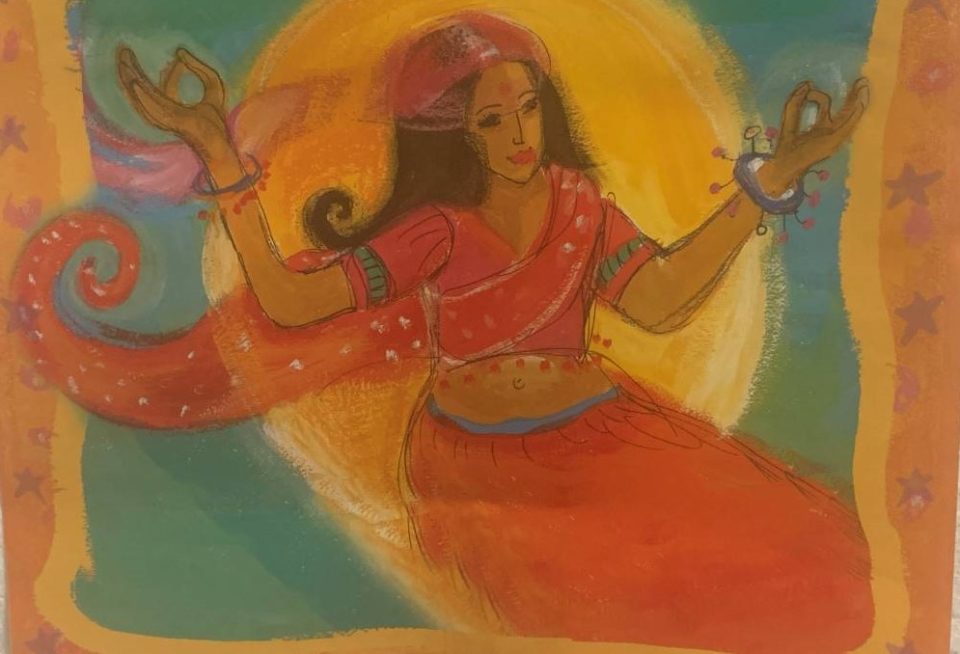Cover photo courtesy: Madhuri Bandla
BY MADHURI BANDLA*
India, a land of paradoxes, is rich with the beauty of contrast and a depth of diversity in languages, religions, cultures and even colors. Our very own Shahrukh Khan is considered “fair” in certain parts of India and “dark-skinned” in many others. Yes, unlike the Whites, Blacks and the Chinese (that have some homogeneity), Indians are a race with many heritages which have led to differences in color, skin tones and perceptions. The Black Lives Matter campaign was a wake-up call yet again to some of the inherent biases, both conscious and unconscious, that are a part of Indian society.
Ironically, there is no fairness in treating a “fair” person as superior and more beautiful. Beauty that blossoms from strength of character and core virtues is one that is timeless. However, the seeds of color are deep-rooted and it will take great efforts of the current and future generations to change the mindset. Unraveling the psychology of color is mind-boggling.
Introspecting the cultural roots of India’s fascination with fair skin reveals a variety of reasons. The colonial past associated fair skin of the British with supremacy. Also, the rich royalty such as the Mughals were of fair skin. While the US is the melting pot of cultures in the modern world, history reflects that India was a melting pot in the old world with invaders and explorers from different cultures inhabiting India and setting up home. History is replete with ancient beauty secrets that glorified maintaining fair skin by protecting exposure to the sun and using healing treatments of sandalwood and turmeric to brighten the skin. India’s caste-system also exemplifies fairer skin with upper-caste and darker skin with lower-caste. An ugly and embarrassing truth of the Indian mindscape in many communities!
Sadly, color conversations in India sometimes include the social pressure of marrying lighter-skinned partners (including blatantly open matrimonial ads seeking fair brides). In fact, darker-skinned couples that have fair babies are considered lucky to have picked up the right ancestral gene with the fairer color. In some communities, even the joy of the birth of a baby is marred by first describing the fair/dark color of the baby before any other attribute.
India’s fascination for fair color is further glorified in movies, marketing, and advertisement campaigns. The multi-million-dollar skin whitening products in the Indian cosmetics market, which sell promises of becoming fairer, whiter and even more beautiful, evidences this. With the idolization of movie stars, and desire to look like a beauty queen, make-up too (including foundation, color correctors and concealers) has crossed the threshold of the stars and become more commonplace than before.
The truth is that external beauty and skin tone are one’s karma that he/she is born with. You can perform tummy tucks, hair transplants, or nose jobs, but the true color of your skin stands permanent. A signature of the race you belong to. Many of us Indian women inadvertently succumb to the allure of make-up, using it as a cover-up to lighten the skin and appear fairer than the true skin tone. Whilst it is no doubt fun to experiment with new looks, hopefully, there is an underlying realization that external appearances are ephemeral and at the end of the day, it’s not how you looked that truly mattered but how you acted, and impacted anyone around you. That is what lingers on after the make-up has been washed away. When make-up has been removed, when the lights fade, when the darkness of the night prevails, every woman must continue to stay grounded and secure with the “real” self, the raw spirit, and the infinite intelligence she represents. The confidence you wear on your face is the best reflection of beauty; inner radiance that lights your eyes is what is enchanting.
The hypocrisy of color is real and some stereotypes have been nurtured in families and societies for many generations. Thankfully, many in the current generation are increasing awareness that there is more to a person than the color of the skin. Cosmetic giants such as Unilever, Johnson & Johnson to name a few, are rebranding their skincare labels and products to have a more inclusive vision of beauty, beyond the veil of just fairness. I hope this trend continues so that the stereotype of fairness representing beauty is shattered. The more we see inter-racial, inter-caste, and other marriages that bring together families of different colors and backgrounds together and evidence that we are truly opening our minds, hearts, homes, and communities to people of different colors, races, and skin-tones, only then will our color perceptions change.
Education and awareness should be an ongoing endeavor to wash away the double-edges and dichotomy. Only then can we come together in sacred harmony.
At the end of the day, we need to see the “human being” first before the color of skin or the texture of hair. Beauty and color may capture attention and identify a person with a particular race, but it is the warmth of personality that steals the heart, intellect that rules the mind and the inner spirit, which stirs the soul. After all, as the adage goes, “the mind does not take its complexion from the skin”.

* Madhuri Bandla is a CPA, accounting educator, freelance writer, columnist, dreamer, lover of life and learning. While her roots are from India, which nourish her and keep her grounded, she considers herself a global citizen in the wilderness of the earth, drawing from different cultures and diverse experiences. Her longest love affair is one with words and she enjoys writing about Hindu mythology, socio-economic and women’s issues, nature-inspired poems, and travel memoirs.





